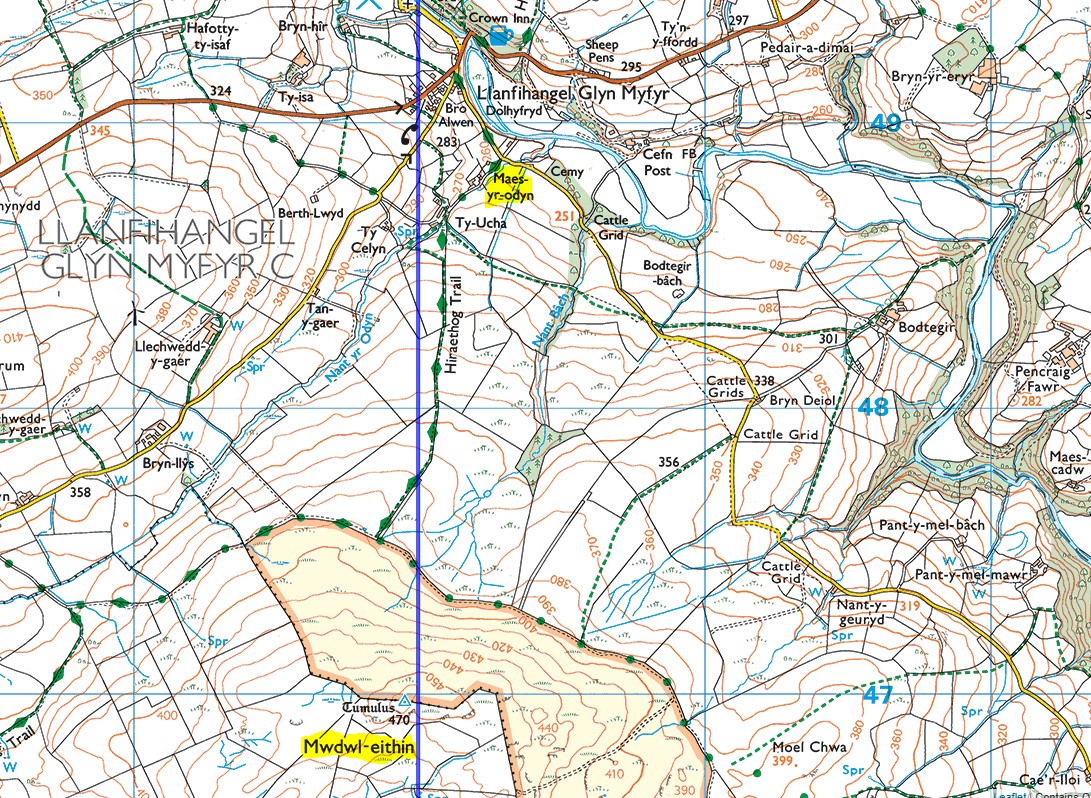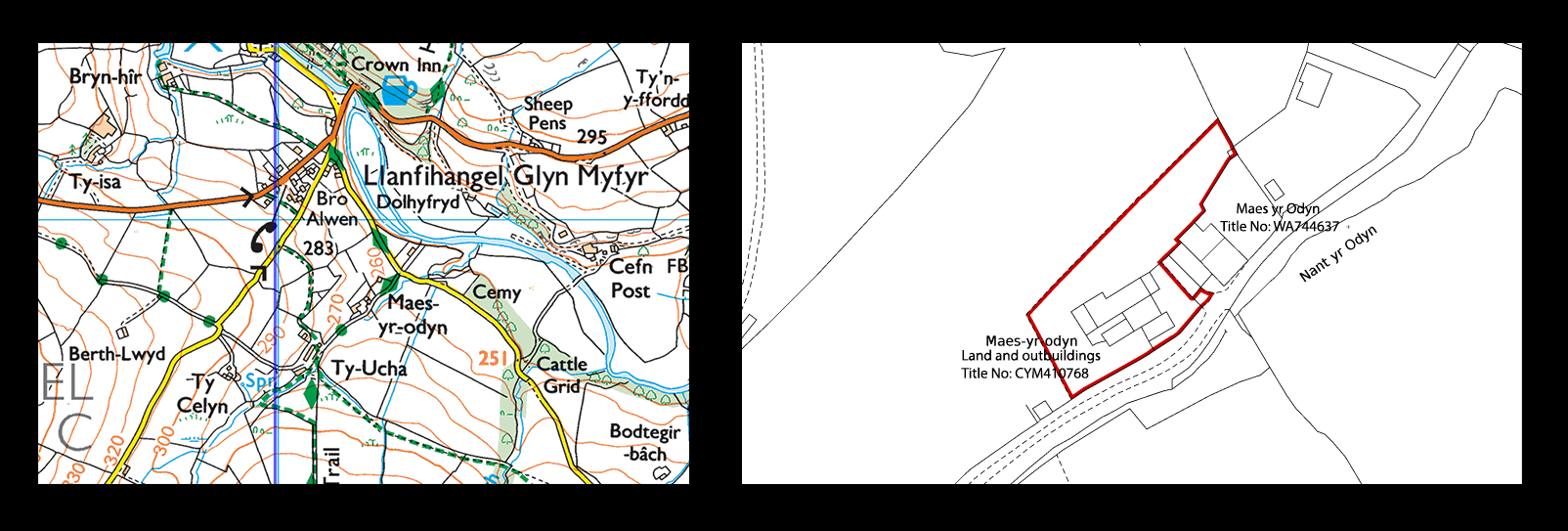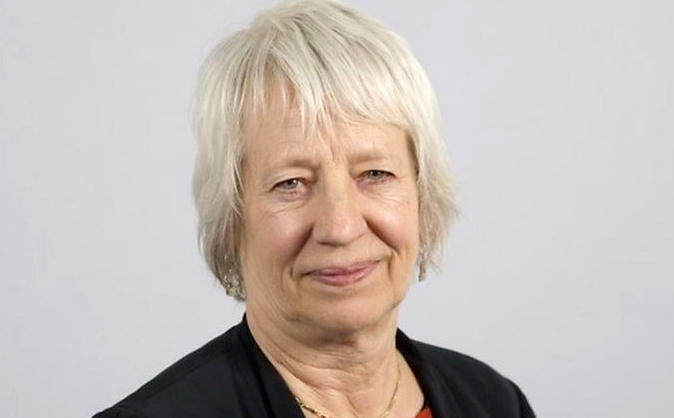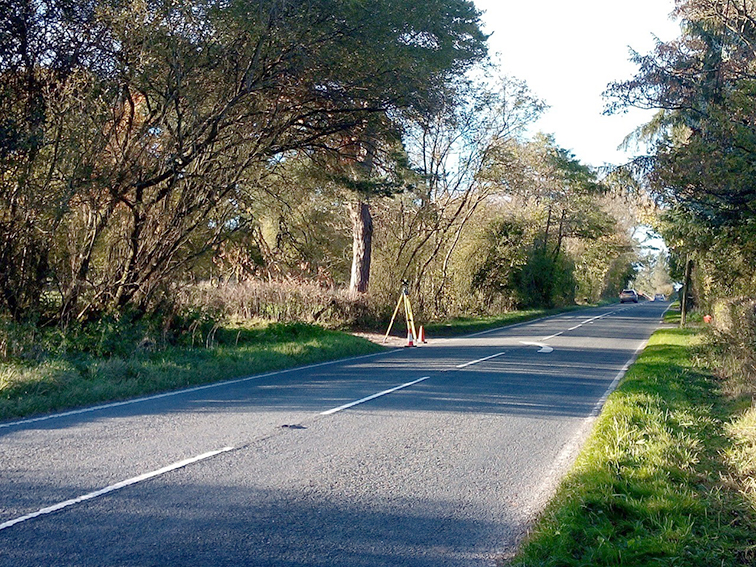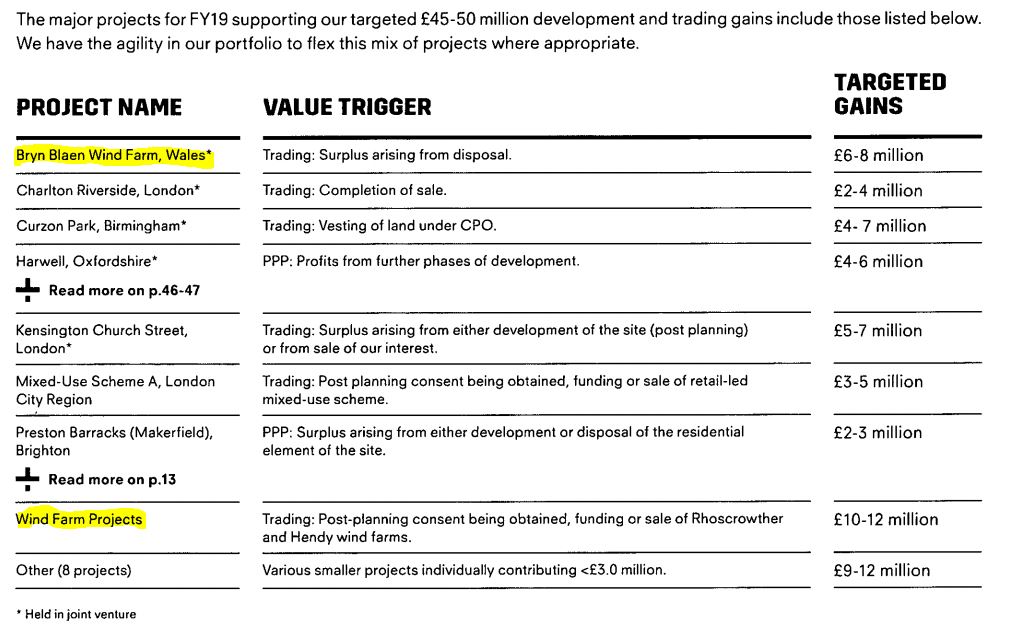Yeah, yeah, retirement. If only!
♦
THE STORY SO FAR . . .
![]() I’m returning to a subject I’ve tackled before because there have been developments. But before the update we’ll do a quick recap.
I’m returning to a subject I’ve tackled before because there have been developments. But before the update we’ll do a quick recap.
Bute Energy Ltd, operating through a host of other new companies, hopes to build some 20 wind farms (at the last count) across Wales. Bute Energy is based in London. (With an Edinburgh pied-à-terre.)
This company is owned by Windward Enterprises Ltd, which was formed 31.05.2018. With Windward Enterprises owned by Windward Global Ltd, which was given life in May 2017 under a different name and perhaps for a different purpose.
Windward Global is controlled by Oliver James Millican who, when accompanied by Stuart Allan George and Lawson Douglas Steele, are the only directors found for most, if not all, the yearlings in the Bute stable.

The reason for the Bute boys choosing Wales is partly that England is reluctant to take onshore wind turbines, and partly that the soi-disant ‘Welsh Government’ has worked itself into a frenzy of planet-saving self-righteousness. To the point where it cannot be long before sackcloth and ashes become de rigeur among the worshippers of Deryn.
Which some of you might view as noble and altruistic.
Less commendable – but truer to type – is Labour Party insiders being given sinecures. Explained here in Corruption Is Such An Ugly Word . . . But I Can’t Think Of Anything Else To Call It!
Don’t that title just trip off the tongue!
Having alluded to a multiplicity of companies involved in the Bute wind farm offensive I’d better give you a link to the updated list of those entities.
◊
DEVELOPMENTS
The working assumption was that a new company called Bute, presumably representing City investors, had come to an arrangement with the ‘Welsh Government’.
The deal being the one I just outlined: that in return for keeping Drakeford and his gang in Greta’s good books, and for taking on a few Labour lags, Bute would be allowed to build wind farms just about anywhere they wanted – planning permission guaranteed from Lesley Griffiths MS (and Gary).

I recently learnt of a couple of new stars in the Bute constellation.
The first is Grayling Capital Operations Ltd, formed 02.11.2021. This is controlled by Grayling Capital Holdings Ltd. Which is in turn owned by Windward Global Ltd, which we looked at just now.
The other new arrival is Grayling Capital Investments Ltd. This is also controlled by Grayling Capital Holdings Ltd and then, by extension, Windward Global Ltd.
Other news from last week was that Windward Cambria Ltd, formed 08.10.2021, had changed its name to Bute Energy Development Holdings Ltd. This company is controlled by Windward Enterprises Ltd. Which is in turn – and again! – owned by Windward Global Ltd.
Complicated, innit?
Then, in updates received from Companies House last week, I learnt that Bute Energy Ltd and Bute Energy Development Holdings Ltd had taken out loans, or found investors.
Bute Energy owns Bute Energy (Cambria) Ltd, the first link in the chain of ownership for the 20 wind farms on the list I linked to earlier. (Here it is again.) Which means that all the Bute wind farms in Wales are covered by the loan to Bute Energy.
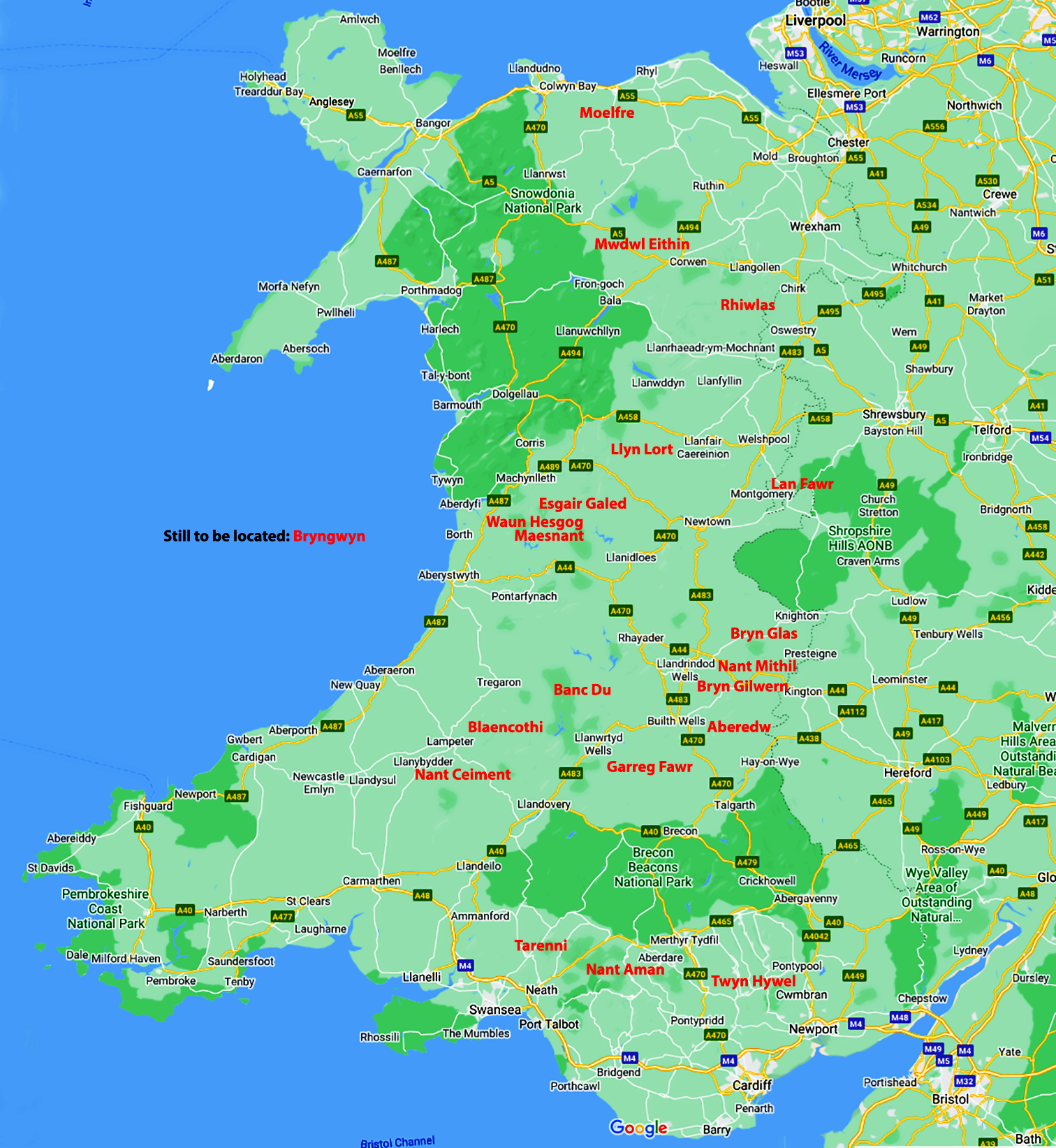
As for the loan to Bute Energy Development Holdings Ltd, seeing as it’s a relatively new company – just over 4 months old – I’m sure we’ll learn more in the near future.
The name that came with the loans is, ‘CI IV Dragon Lender Ltd’.
I’d like to tell you that this is a new Welsh financial institution created with the backing of a pro-business administration in Corruption Bay.
I’d like to, but I don’t do fairy tales.
Explaining who we’re dealing with here is quite complicated, so please bear with me. The company number given on the debenture documents is 13816597, and this is indeed the number for CI IV Dragon Lender Ltd.
Set up as recently as 23 December last year this company, with an address in Rotherham, South Yorkshire, is owned by CI IV Dragon Holdco Ltd, which shares the Rotherham address, and was formed on the same day.
Fancy that!
It’s reasonable to assume that ‘Dragon’ is a reference to Wales, and the 20 wind farms Bute has planned for our country.
The single share issued by Dragon Holdco is held by CI IV Transfer Coöperateif UA, of Utrecht in the Netherlands.
There are a number of other CI IV companies registered with Companies House. None of which go back further than March, 2020. Many link with Scottish projects, and use as their address, 115 George Street, Edinburgh.
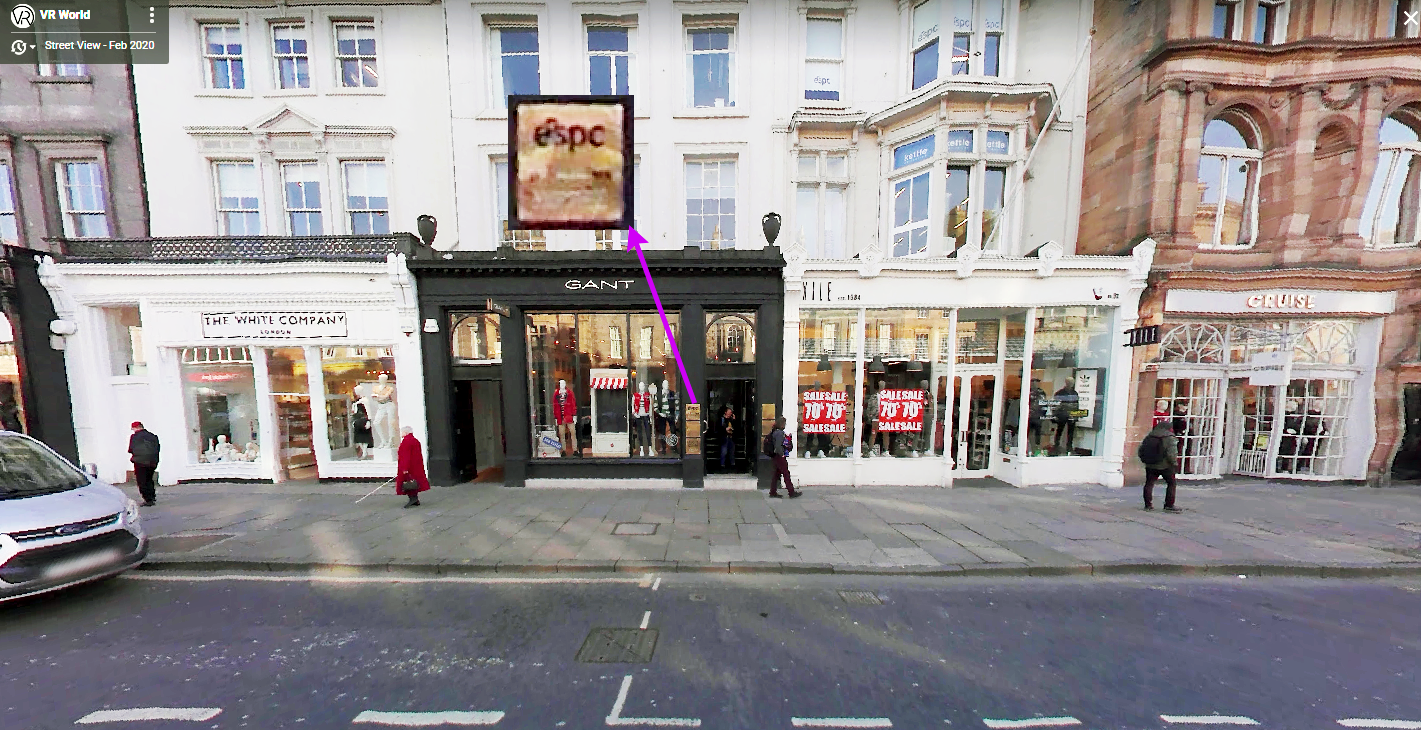
Some of you may remember George Street from earlier postings. It’s the New Town office of the Edinburgh Solicitors Property Centre (ESPC), used by Millican and his mates.
So who or what is ‘CI IV’? The answer is that it stands for Copenhagen Investments 4. The answer was found through this Linkedin page.
It’s an investment fund and part of the Copenhagen Infrastructure Service Co. Here’s the link to the website for Copenhagen Infrastructure Partners. This outfit will invest your money in wind energy and similar projects.
As we read under the ‘News’ tab, ‘CIP is the world’s largest dedicated fund manager within greenfield renewable energy investments’.
Here’s the page for CI IV. The map obviously hasn’t caught up with latest developments in Wales. Which may be understandable, given that Companies House wasn’t notified of the deals until last Thursday. (Though I’m sure negotiations between Bute and CIP had been going on for some time.)

A search for ‘Bute’ on the CIP website turned up nothing, but I did find another reference to Wales. For this page tells us, ‘Copenhagen Infrastructure 1 has invested GBP ~155m of equity for a 49% stake in Falck Renewables S.p.A.’s (Falck) operational onshore wind portfolio in Scotland and Wales.’
In this portfolio we find Cefn Croes wind farm in Ceredigion.
This buy-in was financed by PensionDanmark. Which means that a wind farm in Ceredigion is now jointly owned by a Danish pension fund and an Italian company.
With all involved expecting to make a pile of money. Well, everybody except the locals; who’ll end up with crumbs, from their own table.
And perhaps flooding.
The only question remaining, for me is this: Was Bute Energy acting all along as a stalking-horse for others, or did Bute get its foot in the door and then look around for the investment needed to realise its ambitions?
Did the ‘Welsh Government’ care either way?
∼
UPDATE: I found this from December ’21. Lee Waters MS, Deputy Minister for Climate Change, worries about German pension funds profiting from offshore wind farms. Waters’ gang in Corruption Bay has no control over offshore wind farms.
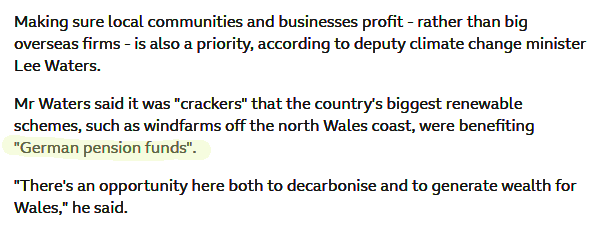
Is he also concerned about onshore wind farms – for which his ‘Welsh Government’ will have to give planning permission – benefitting Danish pension funds?
One to watch?
◊
THOUGHTS
When the ‘Welsh Government’ decided that our homeland was to become an al fresco power station those mighty intellects were confronted with three options as to how they might go about achieving that objective.
They could have . . .
- Invested in Welsh companies to build the turbines, and other Welsh companies to generate electricity. Thereby creating thousands of jobs and enriching the country.
- Followed their socialist instincts and had our wind farms run by a body owning them for the nation; or else local groups could have owned individual wind farms. (As appears to be happening in Scotland.)
- Acted like a pimp and invited violators and exploiters to do what they wished with Mam Cymru.
As we know, to our cost, the ‘Welsh Government’ chose the third of those options. All the while trying to justify the betrayal by whimpering about a ‘climate emergency’.
Which goes some way to explaining why these latest developments involve companies and investment fund managers from Denmark, a country not much bigger than Wales, and with none of our natural resources.

I have no doubt that Denmark is one of the countries the ‘progressive’ consensus in Corruption Bay looks up to, and wants Wales to copy. A kind-of socialist country with a high standard of living, first-class infrastructure, and health and social services that most countries can only dream of.
But how do the denizens of the Bay think these goodies are paid for? Do they believe that Denmark gets a block grant every year, perhaps from Berlin, or maybe Brussels?
The truth is that the Danes have their little piece of heaven thanks to a healthy economy of their own. Due to the likes of the Maersk Group (value, 2018: $28.1bn), the Carlsberg Group ($19.3bn), and Danske Bank (£16.6bn, 5m+ retail customers).
Apropos this article, another reason the luvvies of the Bay look towards Denmark is because the Danes are soooo committed to renewable energy.
Let’s compare the Danish approach to renewables with that of our esteemed tribunes.
The Danes design turbines, and build them at home and abroad. Either way, the money ends up back in the land of the Little Mermaid. Big in this field is Vestas Wind Systems (value, 2018: $17.9bn). And as we’ve seen in this article, there are also the Danish investment funds.
So, one way or another, Denmark gets 100% of the economic benefit from wind turbines erected in and off Denmark, and a healthy slice of the moolah for turbines erected elsewhere. Especially in ‘welcoming’ countries like Wales.
Wales sees only ‘community funds’. The modern equivalent of beads and blankets.
This kind of relationship used to be called colonialism. The sort of thing socialists and ‘progressives’ railed against. Presumably, the ‘Welsh Government’ now believes that such exploitation is OK if it can be greenwashed.
However we look at, ‘renewable energy’ has been one of the biggest rip-offs in Welsh history. Anyone who thinks this exploitation is acceptable because we’re ‘saving the planet’ is either a fool or a liar.
Bute Energy, in various manifestations, with addresses in London and Edinburgh has, for a minimal outlay, landed itself at least 20 wind farms in Wales that it can now exploit with foreign investment, or sell off entirely for a vast profit.
Wales will see none of that money, no jobs, and no other benefits . . . unless of course you’re well connected with the ‘Welsh’ Labour Party.
◊
AND FINALLY . . .
I don’t for one second blame Danish companies for making money; for providing jobs and creating wealth for Denmark and the Danish people. Nor do I attach any blame to Danish politicians for encouraging this entrepreneurialism.
That is what they are supposed to do.
The blame for the growing inequalities between two small European countries, and the growing exploitation of one by the other, rests entirely on the shoulders of those posturing clowns in Cardiff.
They who have failed us, the Welsh people, time after time.
Let’s emulate Denmark by all means. And Ireland, which wants to erect – in Wales, of course! – the UK’s tallest wind turbines.
But let’s remember there can be no substantive improvement until we sever the English connection. Another slavering simian we need to get off our back is a socialism that prioritises gestures and identity politics over the material well-being of our people.
♦ end ♦






